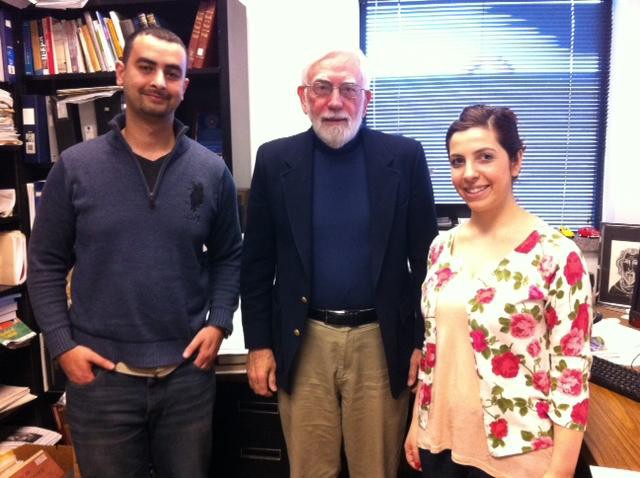GVSU to host discussion about blasphemy, religion

GVL / Courtesy – Kyle Norris Ronald Stockton, UM Dearborn
Apr 18, 2016
On April 18, Ron Stockton, a political science professor at the University of Michigan–Dearborn, will visit Grand Valley State University to discuss free speech, blasphemy and how they work within Islam.
Stockton was inspired by the Mohammed cartoons crisis, when a Danish newspaper ran a series of cartoons depicting the Muslim deity that was meant to further the conversation about self-censorship in Islam, but in reality was deemed offensive and blasphemous by many Danish Muslims due to laws against iconism within the religion.
“It was obvious that this was not just a routine issue that was localized with broader implications, it really was spread worldwide,” he said. “I spent a long time trying to think, ‘what other incidents have occurred?'”
Stockton spent about two years doing research about blasphemy and ended up with the current presentation, titled “Mohammed Cartoons and Religious Images: Blasphemy, Violence and Free Speech.”
Stockton has also incorporated the speech into some of his classes because he’s passionate about the topic and wants people to talk about it. Stockton said that though it seems like a heavy subject, he makes it entertaining and relatable for all attendees.
“It’s going to be really thought-provoking because (attendees will) learn about some of the things Islam says about blasphemy, but also how its been interpreted and how it’s been responded to,” said Coeli Fitzpatrick, coordinator of the Middle East studies program at GVSU. “It also brings out the questions of tolerance and the idea of just because you can say something doesn’t mean you should, all of those issues.”
This is not the first time Stockton has visited GVSU. In January 2014, Stockton visited campus to speak about Islamic burial practices that accompanied a gallery exhibition of photographs of Muslim gravestones in Michigan.
Fitzpatrick invited Stockton back due to the success of his last event and because she thinks this talk is coming at a good time.
“It will be interesting and very timely, because there were the attacks in Paris last January and then more (recently), and though they weren’t motivated by the same thing, people still have questions,” she said. “I think that right now, people tend to think about the issue in simplistic ways. I’d like them to just get more nuanced.”
Stockton has also incorporated the speech into some of his classes because he’s passionate about the topic and wants people to talk about it. Stockton said that though it seems like a heavy subject, he makes it entertaining and relatable for all attendees.
“Of course I want (students) to understand the issues, but really, this is a lecture that will give more questions than answers,” he said. “That’s what I hope.”























